The Moral Education program is an innovative, engaging curriculum designed to develop young people of all nationalities and ages in the UAE with universal principles and values, that reflect the shared experiences of humanity.
READ MORE
In a growing knowledge-based economy and an increasingly interdependent world, there is a need for a holistic approach to education. The program encourages youth to explore questions core to everyday life, building on the cultural values shared across the UAE’s diverse communities.
It promotes character building to develop the next generation of role models and leaders, who contribute positively to the long-term health and well-being of society and the wide world. Adopting a logical approach, the program fosters universal concepts relevant to any community.
The program, which will be delivered to students in both public and private schools, was carefully developed in close collaboration with social and education leaders from the UAE and the world. The result is a forward-thinking curriculum built on active learning techniques that extend beyond the classroom. These include informal learning environments such as field trips and community outreach programs.
The Moral Education program was born out of the UAE’s broadened vision of building a sustainable society, grounded in the happiness, wellness and social well-being of its people. The program creates a framework of collaboration between the school, the family and the wider community to promote good citizenship. The use of the word “moral” in this context represents a set of attributes that shape the next generation to become citizens of the world.
The Moral Education Committee oversees the development, progress and implementation of the Moral Education Program. The committee comprises the Abu Dhabi Crown Prince Court, The Ministry of Education, Abu Dhabi Education Council, the Dubai Knowledge and Human Development Authority and the Abu Dhabi Tourism and Culture Authority.
READ LESS
ABOUT 4 PILLARS
The Moral Education program covers four pillars – character and morality; the individual and the community; civic studies; and cultural studies and blends academic content with an exploration of character and ethics. It has been designed as a progressive series of units to be taught over twelve years of schooling from Grade 1 to Grade 12.
The character and morality curriculum is centred around developing each student as honest, tolerant, resilient and persevering individuals,
A true citizen is one that takes care of themselves in addition to caring about the good of society and participating actively to make things better.
Whether a student was born in the UAE or moved here with their family, it is essential to understand the fundamentals of how the UAE was formed and how it is governed today.
Culture is an inherent part of a society and the program wants to highlight UAE’s shared human culture that encapsulates the traditions and symbols that help define who we are.
Character and Morality
The character and morality curriculum is centred around developing each student as honest, tolerant, resilient and persevering individuals, who reflect inwards on and build an individual sense of morality based on personal outlooks. The curriculum is designed to teach students to respect each other and celebrate differences. Students are encouraged to be aware of the positive impact they can have on other people and the world. Courses will begin when students are in Grade 1 and continue throughout their Primary and Secondary education until Graduation. The curriculum will feature various aspects of character development including:
The Moral Education subject is a comprehensive approach to sustaining the society’s remarkable features of tolerance, openness, acceptance and respect of the other, which have developed over the past few decades.
The Individual and the Community
A true citizen is one that takes care of themselves in addition to caring about the good of society and participating actively to make things better. The Individual and Community curriculum is focused on developing an individual who can thrive in different social situations and make a small change towards a big difference. Building upon the core competencies learned throughout the Character & Morality courses, students will dive deeper into community awareness and how they can become active members of their community, through community service subjects and learning about the importance and value of serving others. It imparts a sense of self-esteem, well-being and respect for familial and interpersonal relationships.
Courses will begin when students are in Grade 1 and continue throughout their Primary and Secondary education until Graduation. The curriculum will feature different aspects of personal and community development including:
The Moral Education subject fosters the ways youth in the UAE deal with the mélange of cultures and beliefs that coexists in the country; prepare them to make morally sound decisions and deal with challenges that inevitably arise as direct or indirect consequences of this exceptional mixture of values, views and ideologies.
Civic Studies
Whether a student was born in the UAE or moved here with their family, it is essential to understand the fundamentals of how the UAE was formed and how it is governed today. The Civic Studies courses are focused on developing the student’s knowledge of their rights as a citizen or resident of the UAE and their duty as a member of Emirati society. The curriculum will also focus on the UAE government’s structure and judicial processes.
Courses will begin in Grade 1 and continue until Grade 4, with a short break, resuming in Grade 8 until Graduation. They are also taught from grades 5-12 The curriculum will feature a range of topics that focus on aspects of citizenship, the duties of citizens to each other as members of a political system and to the government. This will include:
The Moral Education subject aims to reinforce the tangible and intangible heritage and culture of the country. It prepares the next generation as responsible, active and aware citizens, with a global perspective. It encourages them to learn about enacting rights and responsibilities as inhabitants of an interdependent and changing world.
Cultural Studies
Culture is an inherent part of a society and the moral education wants to highlight UAE’s shared human culture that encapsulates the traditions and symbols that help define who we are.
Pedagogy on culture in theory and practice, creates a new language that proliferates the understanding of native knowledge, values and collective identities. Cultural Studies will be focused on fostering an understanding around UAE culture and heritage as well as what a larger global culture means.
Courses will begin when students are in Grade 1 and continue throughout their Primary and Secondary education until Graduation. The curriculum will centre around the UAE heritage and how that heritage is part of a larger universal culture. Classes will feature topics including:
The Moral Education subject aims to reserve and ingrain the nation’s longstanding and unique traditions, heritage, culture, values and moralities and tap into its reservoir of moral wisdom (of history, art, literature, stories).
OBJECTIVES OF MORAL EDUCATION
The ultimate outcome of Moral Education is to create a generation of citizens who:
Build Character
Build character traits that include resilience, perseverance, work ethic, critical thinking and discipline Prepare students with the skills they need for adult life. Skills include financial literacy, awareness of addiction, mental and physical well-being and digital literacy
Instill Ethical Outlook
Teach students the practical and ethical values that are represented in the ethos of the course, which includes tolerance, honesty, dignity, respect, and humility
Foster Community
Encourage and enable students to become engaged members of their community
Endear Culture
Teach students about culture, both of the UAE and of the wider world, and enable
them to value the wealth of culture available across the world
Local: Develop responsible, cultured, engaged adults ready for the wider globalized world
Global: Develop student awareness of the shared human experience and make them messengers of the values they embody
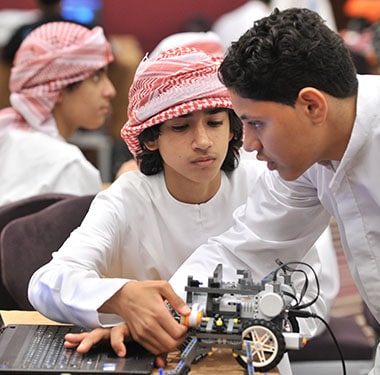
Celebrating the principles of tolerance, openness, acceptance and respect.
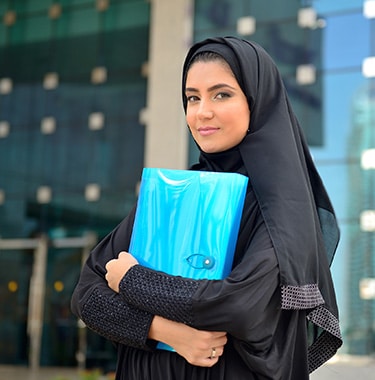
Encouraging students to reflect on their own culture and those of others around the world.
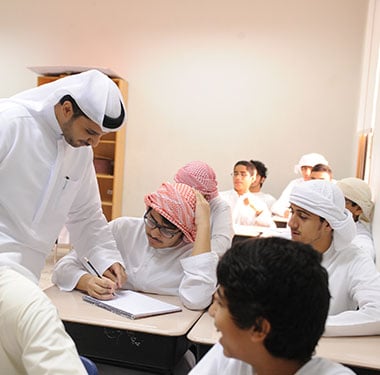
Fostering the ability for youth to understand and appreciate the diversity of cultures and beliefs that coexist in the UAE.
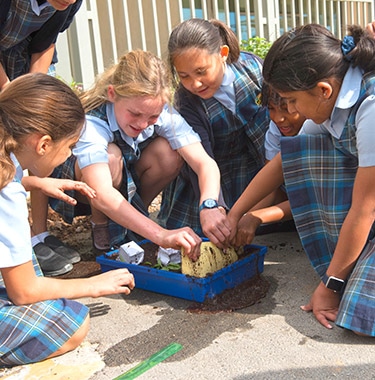
Equipping youth with the skills they need to become a generation of responsible and resilient people, who know their rights and responsibilities.
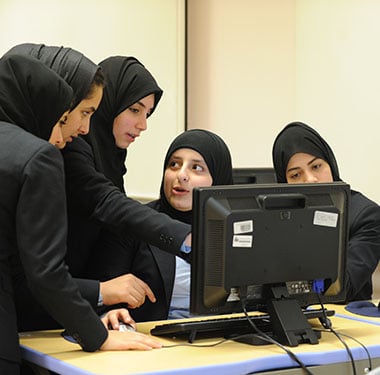
Enabling youth to grow into productive, contributing members of their communities, and anchors of the nation’s sustainable development.
